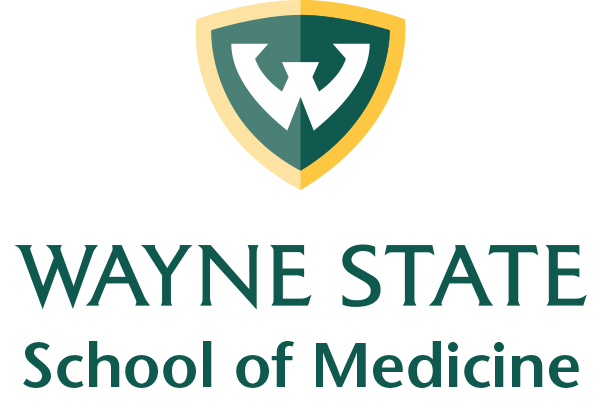Skip to content
Structure and Curriculum
Postgraduate Year I
- Interns rotate on inpatient general medicine services, including a night float rotation.
- Interns will have 2-6 weeks of night float (8 PM to after AM rounds ), but NO overnight call on any other rotation including medical floors/ward blocks.
- Interns have the opportunity select 4 weeks of subspecialty electives.
- Interns ambulatory schedule is 4 half-day clinics + one half-day specialty clinic
- Interns provide teaching for our eager rotating Wayne State medical students.
Postgraduate Years II and III
- Residents supervise on general medicine floors and rotate through subspecialties.
- Senior residents rotate through 4-6 months of MICU and CCU services between their PGY2 and PGY3 years.
- Senior residents are expected to be teachers and leaders for junior residents and medical students.
- Opportunities for research are available and strongly encouraged.
- Residents have the opportunity to present their work at local, regional, and national meetings and may utilize their $2500 educational stipend for conference/travel
4+1 Scheduling
- Residents are divided into 5 cohorts (red, blue, green, purple and yellow)
- Residents will be assigned to clinical duties for a 4 week block which is then followed by 1 week of clinic (hence 4+1)
- The clinic week overlaps a full weekend, so each resident is guaranteed a “golden weekend” with two days off in a row every 5 weeks
- Clinics are held over 4-5 half day sessions of the 5-day clinic week
Ambulatory Training
- Residents are assigned to work 4-5 half day sessions during a one-week period following every 4 week clinical block (see above)

- Outpatient medicine opportunities are also available on subspecialty rotations.
- Interactive Ambulatory didactic sessions are given once weekly on Thursdays. Topics include management of chronic diseases, documentation, business of medicine, utilizing evidence in medical practice and health equity.
- Residents are assigned to complete John’s Hopkins Ambulatory Modules which supplement the clinical and didactic learning and help prepare for the ABIM
- Clinic locations include the General Medicine Ambulatory Practice (GMAP) clinic UHC-6A, University Health Center (UHC) -5A, Tolan Park clinic, and the Corktown Health Center LGBTQ Medical Clinic
- Telemedicine is integrated into each resident’s schedule
Clinical Training
Educational Support
- Residents have up-to-date resources available in each practice ensuring the care they provide is current.
- Residents receive a $2500 annual educational stipend which may be used for educational materials, conference expenses or electronic equipment such as tablets and laptops.
- The program will purchase MKSAP as well as NEJM+ for interns during their first year/
- Each intern will be assigned to an associate program director. The associate program directors will meet with interns intermittently and advise them on such matters as learning from patients, dealing with stress, prioritizing, and balancing personal and professional demands.
- During the second and third years, residents who wish to pursue academic careers may choose an additional advisor in their area of interest. In this way, every resident has the considerable advantages of a large residency–patient population, faculty, and University — as well as the warmth and camaraderie of a smaller program.
- Residents have full access to the Shiffman Medical Library at Wayne State University including online access to PubMed and UpToDate with ability to access UpToDate from Apple and Android phones
In-training Exams
- The department supports resident feedback and evaluation including objective measures of assessment.
- Residents are required to take the American College of Physicians In-Service Exam yearly
Opportunities
- Our graduates pursue a wide scope of careers, ranging from primary care to research-oriented fellowships. In the past three years, 30 percent of our residents have gone into general internal medicine, and 70 percent into subspecialties, while a number are pursuing careers as hospitalists.
- See our fellowship match results on the Residency Application Homepage
Educational Conferences
- The Department of Internal Medicine conducts numerous educational conferences. Teaching Conferences meet the needs of our house staff and faculty while emphasizing a lifelong learning commitment.
- Resident morning report (occurs daily on floor months)
- Department of Medicine Grand Rounds weekly
- Cohort Cup! Gamification of Medical Education
- Residents team up in cohort groups to compete in Medical Education based games, with points tallied throughout the academic year
- Every 4-5 weeks on Thursday 1:30-3:00, for all residents
- Ambulatory interactive didactic sessions every Thursday, for all residents
- Board Review lecture series
- Intern Lecture (3:00 – 5pm every Thursday except on Cohort Cup)
- PGY2/PGY3 Lecture (1:30 – 3:00 every Thursday except on Cohort Cup)
- Subspecialty grand rounds and didactic sessions
- Residents are encouraged to attend state and national conferences




You must be logged in to post a comment.